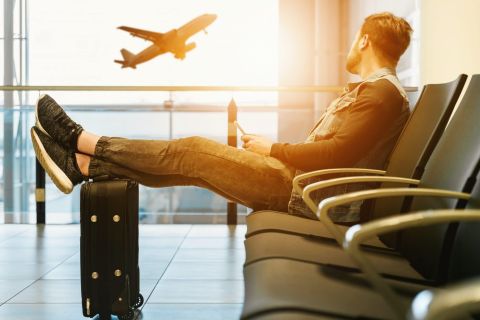U.S. Updates Travel Requirements

The United States has recently changed its travel restrictions and is no longer placing restrictions on entry due to geography. This is great news for many employers looking to return to hiring foreign workers and bring them to the U.S. Starting November 8th, 2021, travel bans that were put in place due to COVID-19 no longer apply, and there will instead be vaccination and testing requirements that will not consider geography.
However, even though these new restrictions are more lenient than the previous ones, visa appointments are limited, and this is something employers and employees should take into consideration before traveling or arranging for travel. The new travel requirements apply to noncitizen non-immigrant international travelers who will be coming to the U.S. This new policy replaces the previous policy, which had country-specific bans on travel. The new policy will apply to nearly all non-immigrant travelers instead of being based on geography. Now non-immigrant travelers will need to be vaccinated to take a U.S. bound flight. Although, there are some limited exceptions to this vaccination requirement, such as:
- People traveling for diplomatic or official foreign government business
- Individuals under age 18
- Persons who have not received the vaccine for medical reasons
- Individuals that are part of COVID-19 trials
- People who have been given an emergency or humanitarian exception that has been approved by the U.S. Embassy or Consulate
- S. Armed Forces personnel and their spouses or children
- Members of some aircrews or sea crew members
- Anyone whose entry into the U.S. is in the national interest
The above exceptions to the requirements for COVID-19 vaccination are the only ones that apply. Previous exceptions no longer apply. The documentation required to qualify for these exceptions is given in the CDC Technical Instructions. If an individual is traveling to the United States through one of the exceptions, they must attest that they are exempted from showing proof that they are vaccinated. These people must also:
- Get a COVID-19 test within three to five days after arriving in the U.S. unless they can show documentation of having recovered from COVID-19 within the last 90 days
- Self-quarantine for seven days even with a negative test result unless they have proof of having recovered from COVID-19 within the last 90 days
- Self-isolate if their COVID-19 test is positive or if they get COVID-19 symptoms
People in certain categories of exemption that will be staying in the U.S. for more than 60 days may need to attest that they:
- Agree to get the COVID-19 vaccine
- Will get fully vaccinated against COVID-19 within 60 days of coming to the United States or as soon as medically appropriate unless the person is too young to be vaccinated
Although travel restrictions may have eased, obtaining a new visa could still be difficult. It would be a good idea to check with any consular post concerning their visa processing operations before attempting to apply. Foreign nationals should also be ready to answer questions from an officer of Customs and Border Protection regarding their entry and any waivers or exemptions.
Once an individual is in the United States, they should check their I-94 within 48 hours to make sure it properly states their status and the dates of their authorized stay. This way, any errors can be more easily corrected. This is essential for employees since this form is often used as documentation for the I-9 form, and the dates on the I-94 may be used when determining the date on which the I-9 needs to be reverified.